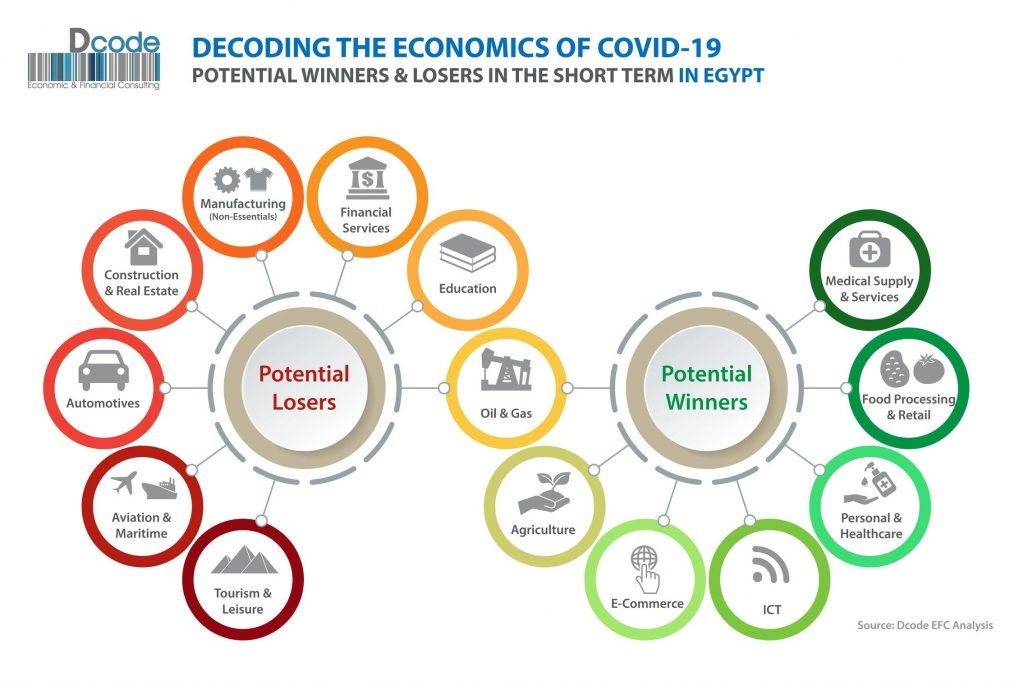As businesses navigate the impact of COVID-19, a vast majority are challenged with how to go about in terms of marketing efforts, speaking to customers, and managing their brands, especially that marketing sits center stage and reflects on how the public perceives the company during difficult times.
The COVID-19 outbreak has been drastically affecting businesses, proving daily that no business is immune to its impact. Given the seriousness of the situation, marketing teams play a major role in how their organizations respond, and while emergency plans might have been in place, reality takes teams off guard, leaving a state of confusion.
During this time, should businesses continue to market for their products and services? Should they address the pandemic? Should they stay silent? Should they combine between all of those? How much communication is acceptable, and how much is too much? Hamed Shamma, associate professor of marketing and BP Endowed Chair at the AUC School of Business, gives his insights on marketing in the time of COVID-19.
Crisis communication is crucial during these times. This applies to all organizations alike, whether a business, government, NGO, or any institution, believes Shamma.
“Crisis communication usually incorporates the classic three T’s: transparency, truthfulness, and timeliness. Today, however, companies need to add another dimension, being emotional. Empathy and humanity rule the day,” said Shamma.
He explains that during such times, institutions are not only engaging with the community to serve the mind, but also the heart and soul, believing that the communication message needs to be heartfelt.
“At the end of the day, we have to know that as marketers, we are dealing with human beings. We are all in the same boat. This is not about customers, employees, shareholders, the public, or the government. This is about human beings, irrespective of their titles, roles or responsibilities,” Shamma asserted.
Correspondingly, he perceives the COVID-19 situation as an opportunity for companies to improve their reputations and work on their public relations, claiming that when businesses face challenges, it’s important for them to “be empathetic, be useful, be prepared, and be a participant.” If they succeed in doing so, they will win the hearts of many. Explicitly, businesses need to lend a hand to their customers by giving them information, supporting families, and helping the community.
“People will not forget what you did at times of crisis. It remains with them for life. This could either be your chance to retain current customers and gain their loyalty, and also win new customers, or the complete opposite. Companies’ reputations can deteriorate just as fast, as a result of laying off employees, for example, or not acting responsibly,” Shamma emphasized.
However, this can sometimes be easier said than done, he explains, due to limitations and constraints; many companies are forced into decisions that they may not necessarily agree with but are essential for business continuity. For instance, letting go of a number of employees may directly be a result of cash flow issues.
Shamma stresses the importance of entrepreneurial marketing this phase, which is about the creative mindset, being innovative, and undertaking marketing activities that will make an impact, even with minimal resources (sometimes referred to as guerilla marketing.)
“Businesses and marketing teams must think differently, be agile, and be present online”, stressed Shamma.
For example, McDonalds, Coca-Cola, Audi, and Volkswagen (VW) designed social distancing logos to emphasize the necessity of social distancing, reflects Shamma. McDonalds separated its iconic golden arches, Coca-Cola distanced the letters of its logo, Audi separated its four rings, and VW split up the V and W. Other successful examples included Nike; while it didn’t change its logo, the company launched a campaign encouraging playing inside due to the lockdowns.

Major brands redesigned their logos to communicate the importance of social distancing
“We’re also seeing companies practicing Corporate Social Responsibility (CSR) despite the financial challenges”, continued Shamma, giving examples of Orange, El Sewedy Electric, Raya, and the Commercial International Bank (CIB), to name a few. They have all provided support to those who have been affected by the market turmoil, curfews, or other factors. Similarly, banks have postponed due dates of personal and corporate loans for six months, exempted online transaction fees, and adjusted withdrawal and deposit limits. Restaurants are also taking this opportunity to engage in responsible activities toward their different stakeholders. Ovio, one of the leading restaurants in Egypt, has been donating proceeds from delivery orders to those in need, and has been focusing on promoting their healthy products.
On online presence and businesses that suddenly had to shift online instantly due to the curfews and lockdowns, Shamma commented that being available and present online is essential regardless of the business nature or the industry.
“Online presence is no longer an option to contemplate about; in fact, businesses that were not online before the pandemic are already behind. As a result, those that were equipped made the transition smoothly, while those that weren’t are certainly struggling and facing hardships in managing their business during these times,” stated Shamma.
Moving to the pandemic’s impact on demand and the changes in consumer behavior and purchasing patterns, Shamma clarified that demand is shifting from durable to non-durable goods, explaining that, understandably, customers are stocking on products like toilet paper, soap, antiseptics, and other household items, because of the fear of the unknown.
Demand for food products in general is increasing dramatically with many retailers observing a growth of more than 300% over their regular turnover, Shamma voiced. Since restaurants are on lockdown, many restaurants have partnered with online intermediaries to offer their products online, and accordingly, traffic from delivery is elevating.
On whether there’s a chance for businesses to survive the pandemic without major losses, Shamma assured that yes, “of course, there’s a chance for businesses to survive and even thrive, but it depends on the industry,” as highlighted in the below infographic by Dcode Economic & Financial Consulting showing Egypt’s potential winners and losers in the short term.

Courtesy of Dcode Economic & Financial Consulting
“’For every threat there is an opportunity’; this is not a new quote, but some businesses are either: not aware of it, do not believe it, or do not apply it during challenging times. No matter where, when, or how we face challenges, there will always be opportunities in times of crisis. It all depends on how you want to see the situation- your perception. The best way to deal with threats is to flip them around so that you consider them opportunities. Think of Zoom! Hadn’t Zoom existed, online learning and business meetings would have been a challenge. This is just the start of a whole new era for marketing, businesses, and beyond”, concludes Shamma.









